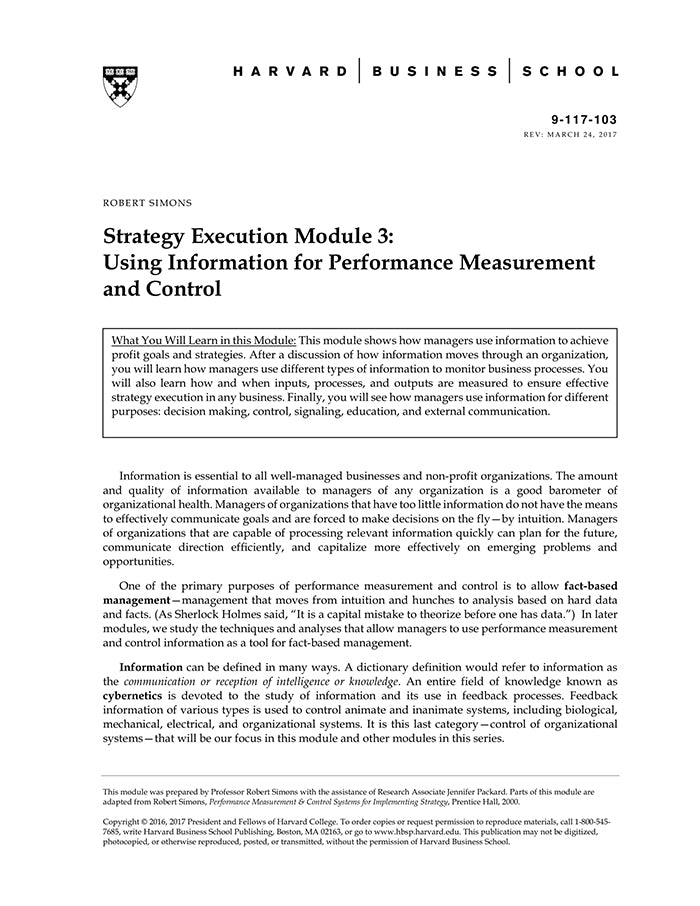Strategy Execution Module 3: Using Information for Performance Measurement and Control
受取状況を読み込めませんでした
This module reading explains how managers use information to control critical business processes and outcomes. The analysis begins by illustrating how managers use information to communicate goals and track performance. Then the focus turns to the choices that managers make in monitoring inputs, processes, and outputs. Factors that influence this choice include measurability, cost, cause and effect relationships, and desired levels of innovation. The module concludes by elaborating the different purposes for which managers use information: decision-making, control, signaling, learning, and external communication. While this module is designed to be used alone, it is part of the Strategy Execution series. Taken together, the series forms a complete course that teaches the latest techniques for using performance measurement and control systems to implement strategy. Modules 1 - 4 set out the foundations for strategy implementation. Modules 5 - 10 teach quantitative tools for performance measurement and control. Modules 11 - 15 illustrate the use of these techniques by managers to achieve profit goals and strategies. View the full Strategy Execution series at: hbsp.harvard.edu/strategyexecution
【書誌情報】
ページ数:22ページ
サイズ:A4
商品番号:HBSP-117103
発行日:2016/9/1
登録日:2017/1/30


